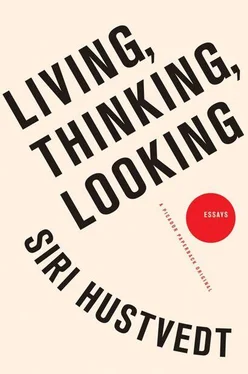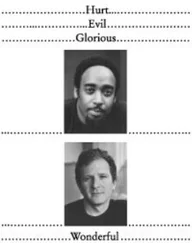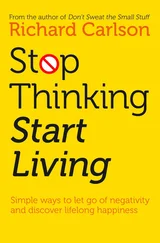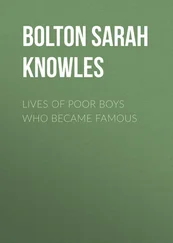Sloper’s comment that Catherine’s emotions for him and her lover are “extremely mixed up” is irrefutable as an insight, and it carries far beyond the boundaries of James’s novel. Our deepest adult attachments are all colored by our first loves. They are extremely mixed up. But it is Catherine’s love for and fear of her father that give him power. Her desire to please him holds her captive to his will. In James’s story, however, there is a further irony, the third element, which is that the struggle over the bounder, Morris Townsend, uncovers what might have remained hidden: the father’s contempt for his daughter. The revelation gives Catherine an iron will, and when Sloper insists she promise that after his death she will not marry Townsend, she refuses, not because she has any intention of marrying him, but because it is her only avenue of resistance.
My father was gentle, kind, often interested in what we did and proud of our accomplishments. The man basked in his young daughters’ love. I have understood this only in hindsight. During my childhood, I wasn’t able to put myself in his position, to imagine what that adulation must have felt like. He was a magical being then, enchanted, I think, by excitement, by the glamour of his otherness. He seemed to know the answer to every question. He was tall and strong, a carpenter, woodchopper, and builder of fires, friend to all mammals and insects, a storyteller, a smoke-ring-blower, and of course, a man who went to work, where he taught college students and engaged in various other cerebral activities, the nature of which were a little dim to me. It is ordinary for children to idealize their fathers. It is also ordinary for children to grow up and recognize that same father’s humanity, including his weaknesses and blind spots. As Winnicott said, it is good for children to have “the experience of being let down gently by a real father.” 5The transition from ideal to real isn’t always so easy, however, not for the children or for the father.
Identities, identifications, and desires cannot be untangled from one another. We become ourselves through others, and the self is a porous thing, not a sealed container. If it begins as a genetic map, it is one that is expressed over time and only in relation to the world. Americans cling desperately to their myths of self-creation, to rugged individualism, now more free-market than pioneer, and to self-help, that strange twist on do it yourself, which turns a human being into an object that can be repaired with a toolbox and some instructions. We do not author ourselves, which is not to say that we have no agency or responsibility, but rather that becoming doesn’t escape relation. “You do not stop hungering for your father’s love,” 6my husband, Paul Auster, wrote in the first part of The Invention of Solitude, “Portrait of an Invisible Man,” “even after you are grown up.” The second part, “The Book of Memory,” is told in the third person. The I becomes he :
When the father dies, he writes, the son becomes his own father and his own son. He looks at his own son and sees himself in the face of the boy. He imagines what the boy sees when he looks at him and finds himself becoming his own father. Inexplicably, he is moved by this. It is not just the sight of the boy that moves him, nor even the thought of standing inside his own father, but what he sees in the boy of his own vanished past. It is a nostalgia for his own life that he feels, perhaps, a memory of his own boyhood as a son to his father. Inexplicably, he finds himself shaking at that moment between both happiness and sorrow, if this is possible, as if he were going both forward and backward, into the future and into the past. And there are times, often there are times, when these feelings are so strong that his life no longer seems to dwell in the present. 7
Here the identifications are seamless. Three generations mingle and time collapses in likeness . I am you. I have become you. But we cannot write, When the father dies, the daughter becomes her own father and then her own son. The daughter never becomes a father. The sex threshold is a thick seam, not easily crossed. It complicates identification and desire. Paul didn’t have a daughter, our daughter, when he wrote those words. She came later. Once, when she was very small, she asked us if she would grow a penis when she got older. No, we told her, that would never come to be. It wasn’t the moment to introduce the subject of sex-change operations, but one may wonder in all seriousness about Freud’s much maligned comment that “anatomy is destiny.” To what degree are we prisoners of our sex?
I, too, have felt the continuities among generations of women in my family, the maternal as an unbroken chain of feeling. I loved my maternal grandmother, whom I knew well, my mormor, mother’s mother in Norwegian. She adored my own mother, her youngest child, and she adored me. I remember her hand on my face when I said good-bye after a visit, the affection in her eyes, her mildness. My own mother’s face, her hands, her touch and voice, have resonated in me all my life and have became part of a legacy I carried with me to my own daughter, an inheritance, which is like music in my body, a wordless knowledge given and received over time. In this, I was lucky. There is little dissonance in that tune that was passed from one woman to the next. Mother love is everyone’s beginning, and its potency is overwhelming. I remember once finding myself with a group of women — it may have been at a baby shower — when one of them proposed a ghoulish choice: If your husband and child were drowning, which would you save? Every woman, one after another, said the child, and as the confessions accumulated, there were also several jokes (told by more than one woman) that fell into the no contest category, which were greeted by peals of laughter. I remember this because it spoke to the ferocity of the love most women have for their children, but also to an undisguised hostility, at least among those particular women, toward the men whom they had left to die in an imaginary deep, a feeling I honestly didn’t share.
It is impossible then to talk about fathers without talking about mothers. For both boys and girls, the mother begins as a towering figure, source of life, food, and feeling. The sentimentality that has lain thickly over motherhood in Western culture, at least since the nineteenth century, strikes me as a way to tame a two-way passion that has a threatening quality, if only by dint of its strength. Children must escape their mothers, and mothers must let them go, and separation can be a long tug-of-war. Every culture seeks to organize the mysteries of maternity — menstruation, pregnancy, birth, and separation, the initiation into adulthood. Taboos, rituals, and stories create the frames for understanding human experience by distinguishing one thing from another and creating a comprehensible order. In her discussion of various kinds of social organization, Mary Douglas makes an interesting comment in her book Purity and Danger, “I would like to suggest that those holding office in the explicit part of the [social] structure tend to be credited with consciously controlled powers, in contrast with those whose role is less explicit and who tend to be credited with unconscious, uncontrollable powers, menacing those in better defined positions.” 8Her point is that ambiguity is dangerous, and that “articulate, conscious powers” seek to protect the system as a whole “from inarticulate and unstructured areas.” She cites the witch as an example of “nonstructure.” “Witches are social equivalents of beetles and spiders who live in cracks of the walls and wainscoting.” But then she mentions another kind of ambiguous character, the legitimate intruder . “Of these Joan of Arc can be taken as a splendid prototype: a peasant at court, a woman in armour, an outsider in the councils of war; the accusation that she was a witch puts her fully in this category.” 9
Читать дальше












